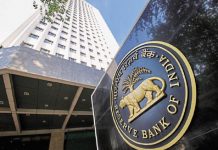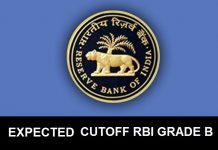Important terms 1 : For Competitive exams
This page include a glossary of Important terms which are being discussed and asked in competitive exams. We will be updating a total of 10 sheets on a daily basis
- Bankruptcy :- When a court judges that a debtor is unable to make the payments owed to a creditor. How bankrupts are treated can affect economic growth. If bankrupts are punished too severely, would-be entrepreneurs may be discouraged from taking the financial risks needed to make the most of their ideas.
- Collusion :- A non-competitive agreement between rivals that attempts to disrupt the market’s equilibrium. By collaborating with each other, rival firms look to alter the price of a good to their advantage. The parties may collectively choose to restrict the supply of a good, and/or agree to increase its price in order to maximize profits.
- Clearing House :- An agency or separate corporation of a futures exchange responsible for settling trading accounts, clearing trades, collecting and maintaining margin monies, regulating delivery and reporting trading data. Clearing houses act as third parties to all futures and options contracts – as a buyer to every clearing member seller and a seller to every clearing member buyer.
- Census :- Census gives us estimates of population. Census is of great economic importance for the country. It tells us the rate at which the total population is increasing among different age groups. In India census is done after every 10 years.
- Capitalism :- A system of economics based on the private ownership of capital and production inputs, and on the production of goods and services for profit. The production of goods and services is based on supply and demand in the general market (market economy), rather than through central planning (planned economy). Capitalism is generally characterized by competition between producers.
- Call Money :- Money loaned by a bank that must be repaid on demand. Unlike a term loan, which has a set maturity and payment schedule, call money does not have to follow a fixed schedule. Brokerages use call money as a short-term source of funding to cover margin accounts or the purchase of securities. The funds can be obtained quickly.
- Budget Deficit :- Budget may take a shape of deficit when the public revenue falls short to public expenditure. Budget deficit is the difference between the estimated public expenditure and public revenue. The government meets this deficit by way of printing new currency or by borrowing.
- Capital-labour Ratio (Capital Intensive):- A business process or an industry that requires large amounts of money and other financial resources to produce a good or service. A business is considered capital intensive based on the ratio of the capital required to the amount of labor that is required.
- Capital Budgeting :- The process in which a business determines whether projects such as building a new plant or investing in a long-term venture are worth pursuing. Oftentimes, a prospective project’s lifetime cash inflows and outflows are assessed in order to determine whether the returns generated meet a sufficient target benchmark. Also known as “investment appraisal.”
- Brain-Drain:- It means the drift of intellectuals of a country to another country. Scientists, doctors and technology experts generally go to other prominent countries of the world to better their lot and earn huge sums of money. This Brain-Drain deprives a country of its genius and capabilities.


















